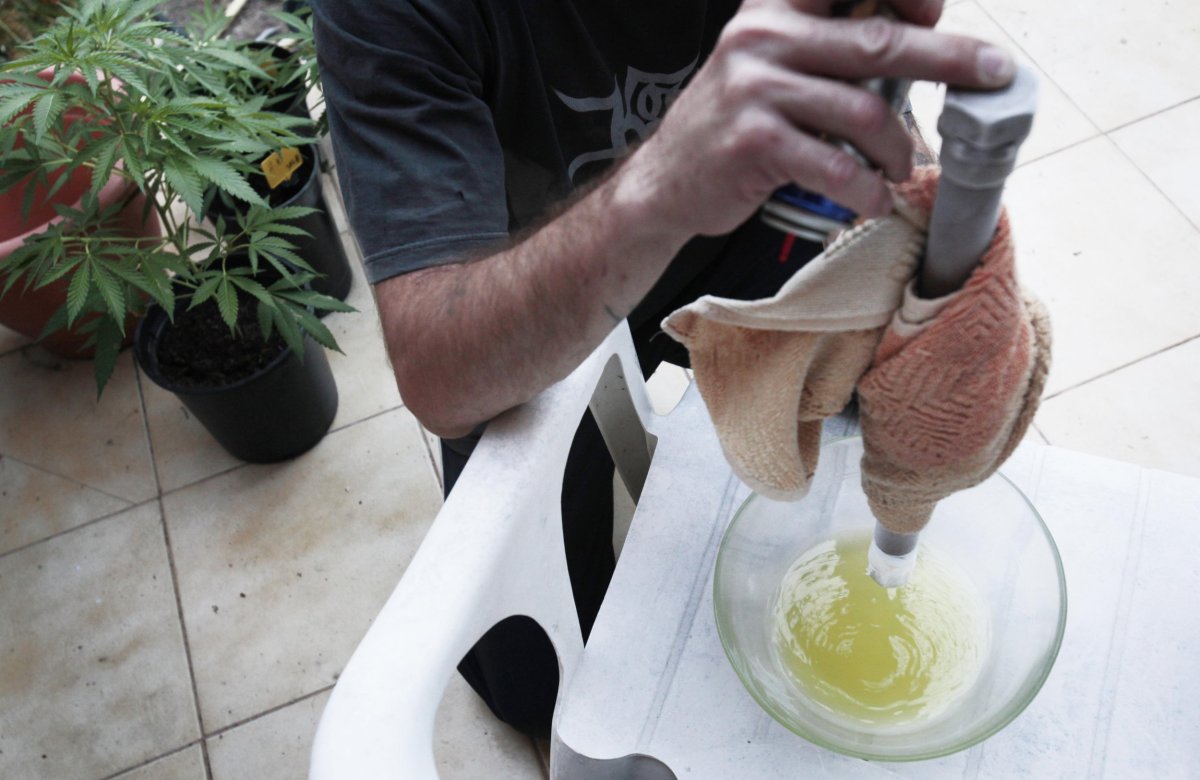Washington state lawmakers are looking to sidestep school district fears about losing federal government funding should they allow students to receive marijuana-based treatments at K-12 campuses.
Democratic state Representative Brian Blake of Aberdeen reintroduced legislation Monday to allow students to receive medical marijuana treatment through school professionals and nurses, despite previous proposals that were rejected in the state Senate when it was controlled by Republicans and Democrats. Blake told Newsweek there's a "good chance" the bill can pass through to Democratic Governor Jay Inslee this time around, although he said school officials remain nervous about the federal government defunding districts because marijuana is still listed as a Schedule 1 illegal narcotic.
Marijuana, cannabidiol (CBD) and cannabis-based treatments have been linked to treating a wide range of health problems, including epilepsy, anxiety, psychosis, schizophrenia, chronic nerve pain, multiple sclerosis, post-traumatic stress disorder and attention deficit hyperactivity disorder.
Blake filed House bill 1060, "Concerning the administration of marijuana to students for medical purposes," as the Legislature convened Monday at the request of Aberdeen constituent John Barclay. Barclay's young daughter has garnered headlines in the region as the family has sought non-psychotropic CBD treatment for her seizures throughout the school day. Barclay described the CBD oil drops he places on cookies or other food as "liquid gold" in easing his daughter's seizures and epilepsy symptoms.

Students such as River Barclay and an 11-year-old in Schaumburg, Illinois, struggle to stay in school without prescribed CBD treatments administered throughout the day.
Blake told Newsweek on Monday the main aim of the proposal is "to keep these kids in school. Some of this CBD treatment is a medical frontier, and to the extent that it can help some children stay in school and have access to educational professionals, we need to find a way to facilitate that."
But the young student at Aberdeen's A.J. West Elementary School and other K-12 peers in the state are often unable to receive marijuana-based treatments on school grounds or at school events due to the school district's fears that it could lose federal funding.
Blake's bill seeks to take advantage of the Democratic Party's gains from the November midterms, with Democrats now holding a 235-199 edge in the House. Inslee has proposed $675 million in spending over the next two years to boost the state's mental health treatment and housing options, The Olympian reported on Sunday. The bill seeks to ease school district concerns that the federal government could revoke funding.
Lawmakers in Washington state have left the decision to allow marijuana-based treatments up to local school districts, but Blake told Newsweek he was not aware of any school district allowing treatment on school grounds.
"We want to do all we can to help, but we also need to work within the confines of the law in our state," said Tom Opstad, Aberdeen School District superintendent, during a KOMO-TV interview in January 2017.
More than 30 states and the District of Columbia have enacted laws allowing usage of marijuana for medicinal purposes, but many students even in those states aren't allowed to simply head to the school nurse's office to take regular doses to ease symptoms. A 2016 Education Commission of the States report found that only Colorado, New Jersey, Maine and Washington state allow medical marijuana prescriptions to be administered on school grounds.
"Whether it's a school nurse, local hospital or Veterans Affairs facility, no health care provider should discriminate against patients whose physician-recommended medical regimen includes cannabis," said NORML Political Director Justin Strekal in a statement to Newsweek Monday. "The policy response offered by Representative Blake and other lawmakers throughout the country is the correct one, because no patient should be denied in their quest to mitigate the suffering from legitimate physical or mental ailments."
A 2017 study of 300 physicians, nurses and providers in Washington, Illinois and Massachusetts found that more than 90 percent are willing to help a young patient get access to medical marijuana. However, about half of those surveyed in the pediatric health care industry said the biggest barrier to prescription was a lack of standards regarding dosages and formulations.
"A school district must permit a student who meets the requirements to consume marijuana for medical purposes on school grounds, aboard a school bus, or while attending a school-sponsored event in accordance with the school district's policy," reads a portion of Blake's H.B.1060 legislation.
Researchers say that continued studies on CBD oils, cannabis and other marijuana treatments are required to move forward.
"There's little known really, scientifically, about how to most effectively use it," said Dr. Joanne Wolfe, a palliative care specialist at Dana-Farber Cancer Institute in Boston, who was involved in a study published in Pediatrics. "It can be valuable, but we really would need more research to be able to use it more effectively."
Last January, the U.S. Department of Justice issued a strict memo to national law enforcement agencies on how to "return to the rule of law" regarding marijuana. Then-Attorney General Jeff Sessions reversed Obama-era DOJ policies easing enforcement of marijuana-related crimes.
"This return to the rule of law is also a return of trust and local control to federal prosecutors who know where and how to deploy Justice Department resources most effectively to reduce violent crime, stem the tide of the drug crisis, and dismantle criminal gangs," the memo said.
Uncommon Knowledge
Newsweek is committed to challenging conventional wisdom and finding connections in the search for common ground.
Newsweek is committed to challenging conventional wisdom and finding connections in the search for common ground.
About the writer
Benjamin Fearnow is a reporter based out of Newsweek's New York City offices. He was previously at CBS and Mediaite ... Read more
To read how Newsweek uses AI as a newsroom tool, Click here.








